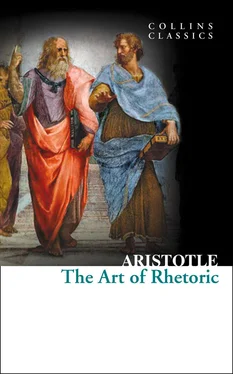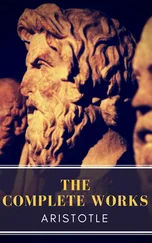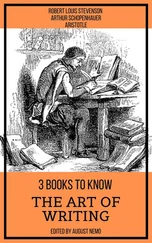With regard to National Defence: he ought to know all about the methods of defence in actual use, such as the strength and character of the defensive force and the positions of the forts – this last means that he must be well acquainted with the lie of the country – in order that a garrison may be increased if it is too small or removed if it is not wanted, and that the strategic points may be guarded with special care.
With regard to the Food Supply: he must know what outlay will meet the needs of his country; what kinds of food are produced at home and what imported; and what articles must be exported or imported. This last he must know in order that agreements and commercial treaties may be made with the countries concerned. There are, indeed, two sorts of state to which he must see that his countrymen give no cause for offence, states stronger than his own, and states with which it is advantageous to trade.
But while he must, for security’s sake, be able to take all this into account, he must before all things understand the subject of legislation; for it is on a country’s laws that its whole welfare depends. He must, therefore, know how many different forms of constitution there are; under what conditions each of these will prosper and by what internal developments or external attacks each of them tends to be destroyed. When I speak of destruction through internal developments I refer to the fact that all constitutions, except the best one of all, are destroyed both by not being pushed far enough and by being pushed too far. Thus, democracy loses its vigour, and finally passes into oligarchy, not only when it is not pushed far enough, but also when it is pushed a great deal too far; just as the aquiline and the snub nose not only turn into normal noses by not being aquiline or snub enough, but also by being too violently aquiline or snub arrive at a condition in which they no longer look like noses at all. It is useful, in framing laws, not only to study the past history of one’s own country, in order to understand which constitution is desirable for it now, but also to have a knowledge of the constitutions of other nations, and so to learn for what kinds of nation the various kinds of constitution are suited. From this we can see that books of travel are useful aids to legislation, since from these we may learn the laws and customs of different races. The political speaker will also find the researches of historians useful. But all this is the business of political science and not of rhetoric.
These, then, are the most important kinds of information which the political speaker must possess. Let us now go back and state the premisses from which he will have to argue in favour of adopting or rejecting measures regarding these and other matters.
5
It may be said that every individual man and all men in common aim at a certain end which determines what they choose and what they avoid. This end, to sum it up briefly, is happiness and its constituents. Let us, then, by way of illustration only, ascertain what is in general the nature of happiness, and what are the elements of its constituent parts. For all advice to do things or not to do them is concerned with happiness and with the things that make for or against it; whatever creates or increases happiness or some part of happiness, we ought to do; whatever destroys or hampers happiness, or gives rise to its opposite, we ought not to do.
We may define happiness as prosperity combined with virtue; or as independence of life; or as the secure enjoyment of the maximum of pleasure; or as a good condition of property and body, together with the power of guarding one’s property and body and making use of them. That happiness is one or more of these things, pretty well everybody agrees.
From this definition of happiness it follows that its constituent parts are: good birth, plenty of friends, good friends, wealth, good children, plenty of children, a happy old age, also such bodily excellences as health, beauty, strength, large stature, athletic powers, together with fame, honour, good luck, and virtue. A man cannot fail to be completely independent if he possesses these internal and these external goods; for besides these there are no others to have. (Goods of the soul and of the body are internal. Good birth, friends, money, and honour are external.) Further, we think that he should possess resources and luck, in order to make his life really secure. As we have already ascertained what happiness in general is, so now let us try to ascertain what of these parts of it is.
Now good birth in a race or a state means that its members are indigenous or ancient: that its earliest leaders were distinguished men, and that from them have sprung many who were distinguished for qualities that we admire.
The good birth of an individual, which may come either from the male or the female side, implies that both parents are free citizens, and that, as in the case of the state, the founders of the line have been notable for virtue or wealth or something else which is highly prized, and that many distinguished persons belong to the family, men and women, young and old.
The phrases ‘possession of good children’ and ‘of many children’ bear a quite clear meaning. Applied to a community, they mean that its young men are numerous and of good a quality: good in regard to bodily excellences, such as stature, beauty, strength, athletic powers; and also in regard to the excellences of the soul, which in a young man are temperance and courage. Applied to an individual, they mean that his own children are numerous and have the good qualities we have described. Both male and female are here included; the excellences of the latter are, in body, beauty and stature; in soul, self-command and an industry that is not sordid. Communities as well as individuals should lack none of these perfections, in their women as well as in their men. Where, as among the Lacedaemonians, the state of women is bad, almost half of human life is spoilt.
The constituents of wealth are: plenty of coined money and territory; the ownership of numerous, large, and beautiful estates; also the ownership of numerous and beautiful implements, live stock, and slaves. All these kinds of property are our own, are secure, gentlemanly, and useful. The useful kinds are those that are productive, the gentlemanly kinds are those that provide enjoyment. By ‘productive’ I mean those from which we get our income; by ‘enjoyable’, those from which we get nothing worth mentioning except the use of them. The criterion of ‘security’ is the ownership of property in such places and under such Conditions that the use of it is in our power; and it is ‘our own’ if it is in our own power to dispose of it or keep it. By ‘disposing of it’ I mean giving it away or selling it. Wealth as a whole consists in using things rather than in owning them; it is really the activity – that is, the use – of property that constitutes wealth.
Fame means being respected by everybody, or having some quality that is desired by all men, or by most, or by the good, or by the wise.
Honour is the token of a man’s being famous for doing good. It is chiefly and most properly paid to those who have already done good; but also to the man who can do good in future. Doing good refers either to the preservation of life and the means of life, or to wealth, or to some other of the good things which it is hard to get either always or at that particular place or time – for many gain honour for things which seem small, but the place and the occasion account for it. The constituents of honour are: sacrifices; commemoration, in verse or prose; privileges; grants of land; front seats at civic celebrations; state burial; statues; public maintenance; among foreigners, obeisances and giving place; and such presents as are among various bodies of men regarded as marks of honour. For a present is not only the bestowal of a piece of property, but also a token of honour; which explains why honour-loving as well as money-loving persons desire it. The present brings to both what they want; it is a piece of property, which is what the lovers of money desire; and it brings honour, which is what the lovers of honour desire.
Читать дальше












